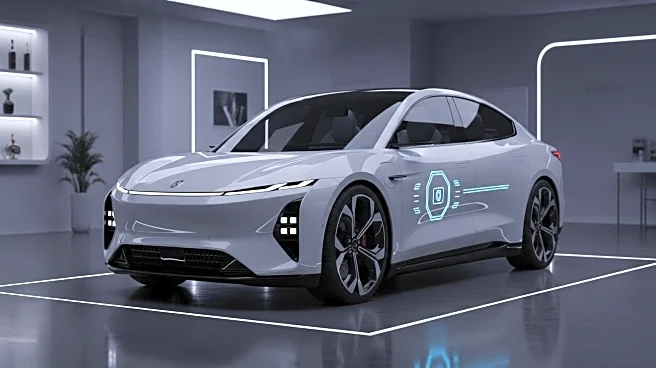What is the story about?
What's Happening?
Tesla is experiencing a decline in sales both in the United States and globally, as reported for the second quarter of 2025 compared to previous years. Despite the rise in non-Tesla electric vehicle sales, Tesla's sales have been decreasing, raising concerns about the company's ability to rebound and achieve significant growth. The company is facing challenges in Europe and China, where competition is intensifying. Tesla's Full Self-Driving (FSD) technology, particularly the unsupervised version, is seen as a potential game-changer. However, its rollout has been delayed, affecting consumer demand. The company's gross margins and profits are under pressure due to rising costs and declining sales, although it continues to make a profit each quarter.
Why It's Important?
The decline in Tesla's sales is significant for the electric vehicle industry, as Tesla has been a major player in driving EV adoption. The company's ability to successfully roll out its Full Self-Driving technology could impact its market position and financial health. If Tesla can overcome these challenges, it may boost demand and justify its high market valuation. Conversely, continued delays in FSD deployment could lead to further sales declines, affecting Tesla's profitability and market share. The situation also highlights the competitive pressures in the EV market, particularly from European and Chinese manufacturers.
What's Next?
Tesla's future hinges on the successful deployment of its Full Self-Driving technology. If the company can roll out FSD unsupervised widely, it may see a surge in demand and production growth. However, if delays persist, Tesla could face significant sales challenges, especially with the potential loss of U.S. tax credits for EVs. The company may need to address rising costs and innovate to maintain its competitive edge. Stakeholders, including investors and consumers, will be closely watching Tesla's next moves and the impact on its financial performance.
Beyond the Headlines
The broader implications of Tesla's situation include potential shifts in consumer trust and regulatory scrutiny regarding autonomous driving technology. Ethical and safety concerns surrounding FSD could influence public perception and policy decisions. Additionally, Tesla's challenges may prompt discussions on the sustainability of its business model and the role of government incentives in supporting EV adoption.















